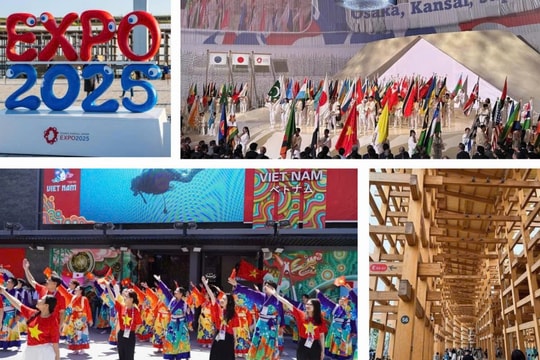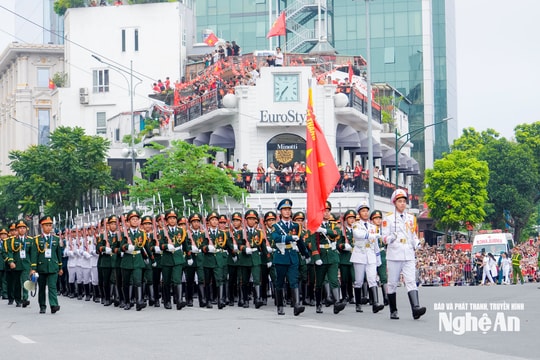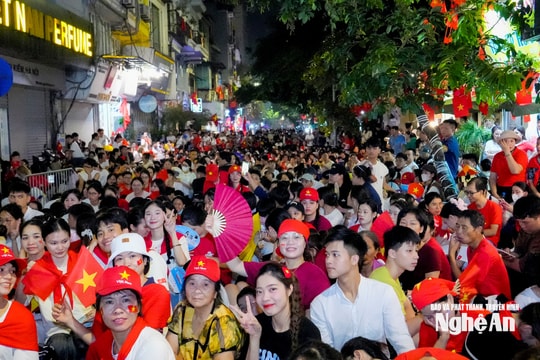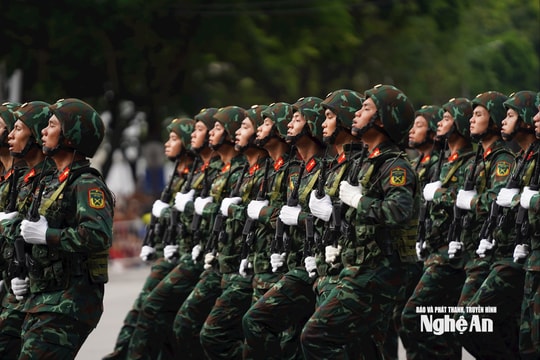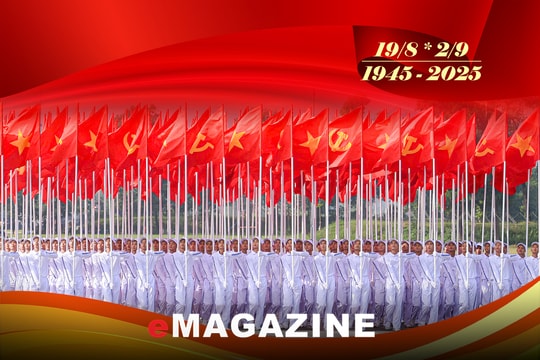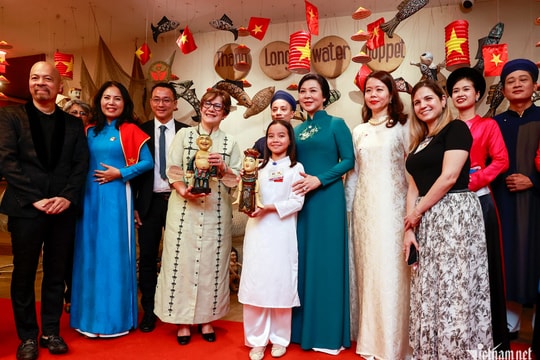August Revolution and the formation of a rule of law state for the people
(Baonghean.vn) - The August Revolution of 1945 gave birth to the Democratic Republic of Vietnam - a state of law for the people.
Creating the premise for the birth of a rule of law state for the people
August RevolutionIn 1945, victory gave birth to the Democratic Republic of Vietnam.Preamble to the Constitution1946stated: “The August Revolution regained sovereignty for the country, freedom for the people and established a democratic republic. After eighty years of struggle, the Vietnamese people escaped from the oppression of colonial policy and at the same time abolished the monarchy. The country entered a new phase.”
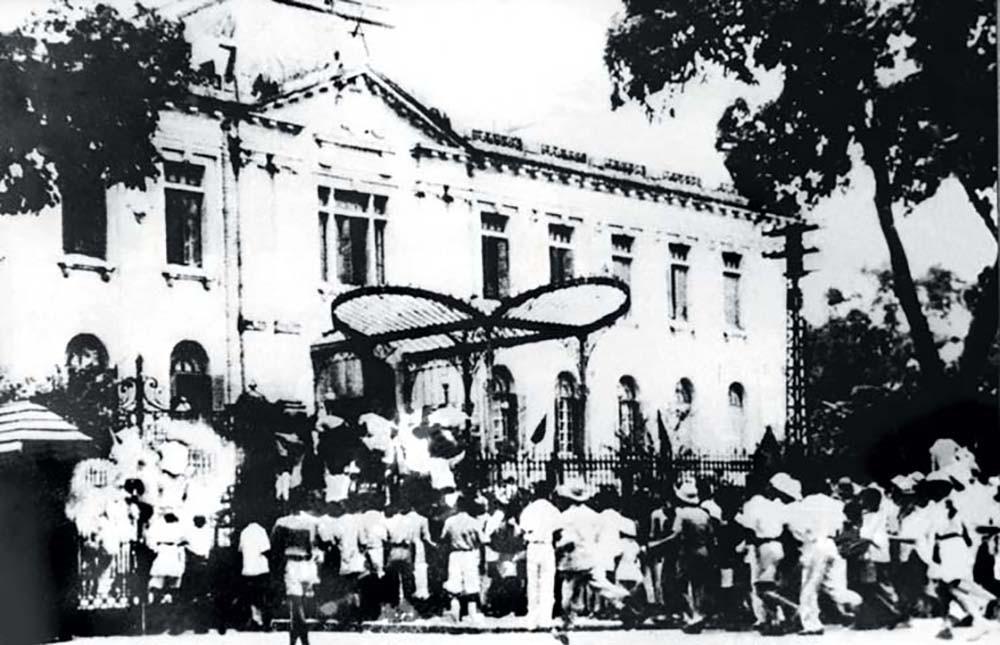 |
| On August 19, 1945, the General Uprising in Hanoi, the revolutionary mass forces captured the Bac Bo Palace. Photo: National Museum of History |
In review of this, inPolitical reportinThe 2nd National Congress of Delegatesof the Party (February 11, 1951), President Ho Chi Minh stated: “The August Revolution overthrew the monarchy of several decades, broke the colonial chains of nearly one hundred years, returned the government to the people, and built the foundation for an independent, free, and happy Democratic Republic of Vietnam. The victory of the August Revolution has made us a part of the great world democratic family… On September 2, 1945, the Government of the Democratic Republic of Vietnam was established, declared to the world Vietnam's independence, and implemented democratic freedoms in the country.”[1].
Talking about the purpose of the August Revolution in 1945, inAppeal on the occasion of the August Revolution and National DayWriting on September 1, 1954, President Ho Chi Minh pointed out: “What is the purpose of the August Revolution? It is to regain peace, unity, independence and democracy for our Fatherland, for our people. The August Revolution succeeded, on September 2 our country declared independence. The Democratic Republic of Vietnam was born. Free general elections were held, the people of our country elected the National Assembly. The National Assembly passed the Constitution and elected the Central Government. Local governments from commune to province were elected by the people. So at that time we began to implement unity, independence and democracy” (NewspaperPeople, No. 220, from September 1 to 3, 1954)[2].
Building a rule of law state for the people
A state of law is first and foremost a democratic state. Second, a state of law is a state that respects the law, is organized and operates within the framework of the Constitution and the law. Third, a state of law is a clean, strong, effective state and overcomes the inherent diseases of old-style states. A state for the people is a state that seeks the rights and happiness of the people.
In fact, throughout his revolutionary activities, President Ho Chi Minh paid special attention to managing the country and society through a rule-of-law state and he was also interested in building a state for the people. Therefore, under his guidance, the Democratic Republic of Vietnam became a rule-of-law state for the people.
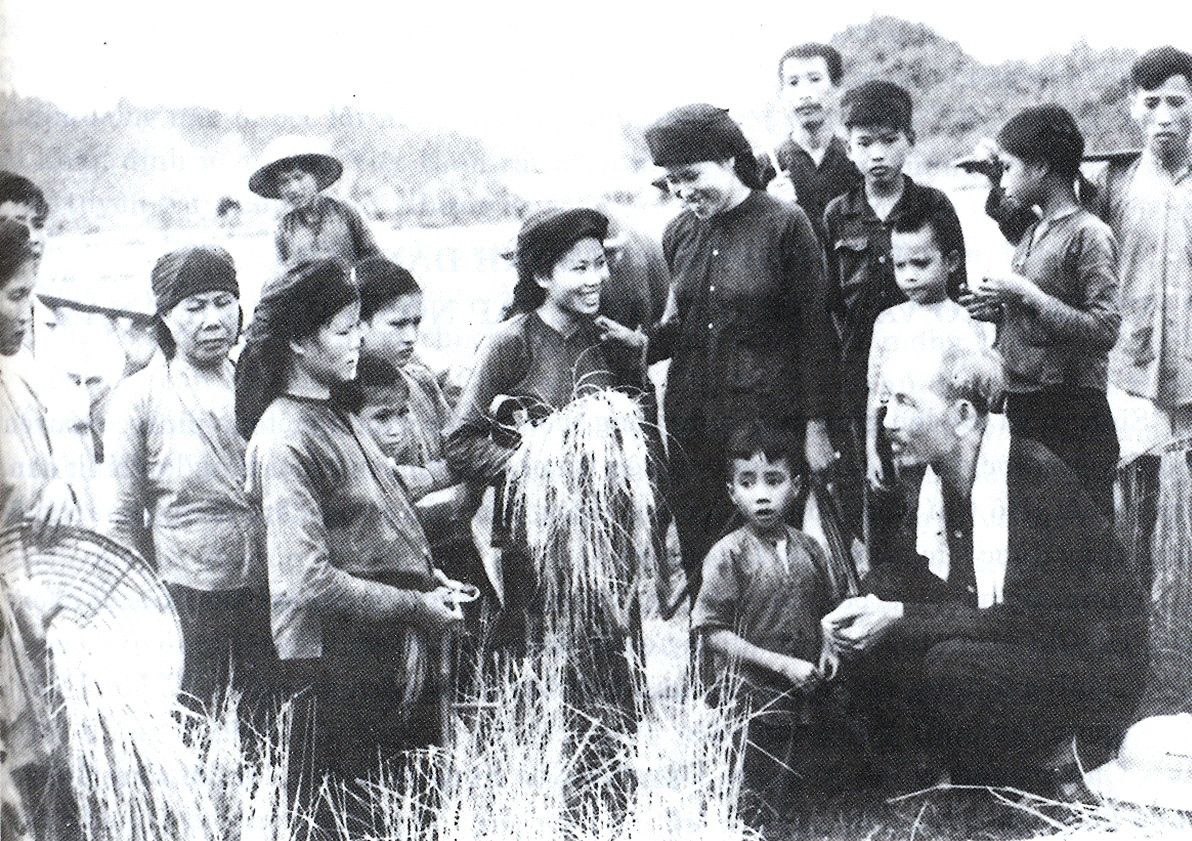 |
| President Ho Chi Minh always cared about building a rule-of-law state for the people. Historical photo |
President Ho Chi Minh built a rule of law state.How? One day after the declaration of independence, on September 3, 1945, in the first meeting of the provisional government, he stated: “Before, we were ruled by an autocratic monarchy, then by an equally autocratic colonial regime, so our country did not have a constitution. Our people did not enjoy democratic freedoms. We must have a democratic constitution.”[3]As President, he twice headed the Constitution Drafting Committee (1946 and 1959), signed orders to promulgate 16 laws, 613 decrees and many other sub-law documents. Besides, in his workPolitical common sense(in 1951), He also pointed out: “In the past, our Vietnam still had a State and Government. However, they were tools of imperialism and feudalism to oppress the people. After the success of the August Revolution, we established a new Government, army, police, court, and new laws for the people to fight against internal and external enemies, and to preserve the people's rights. Our new State and the old State have different characteristics... The old State was in the hands of imperialism and feudalism, its nature was imperialism and feudalism, and reactionary. Our State today is in the hands of the people against imperialism and feudalism. Its nature is people's democratic dictatorship.”[4].
How did President Ho Chi Minh build a state for the people? According to President Ho Chi Minh, the victory of the August Revolution "brought the Vietnamese nation into a new era, an era of independence, freedom and socialism"[5]Therefore, right after the success of the August Revolution, in the articleThe government is the servant of the people., He stated: “Nearly two months ago, before the August 19, 1945 uprising, when people mentioned the word Government, they immediately thought of a dangerous and cunning gang of bandits. On the contrary, everyone has a warm feeling mixed with deep respect for the current People's Government... The work of the Government must aim at the sole purpose of seeking freedom and happiness for everyone. Therefore, the People's Government must always put the people's interests above all else. Whatever is beneficial to the people must be done. Whatever is harmful to the people must be avoided... In short, all the evil, corruption, injustice, and oppression of the old regime and the previous councils of elders cannot exist in the current People's Committees. The People's Committee is the Committee responsible for implementing freedom and democracy for the people. It must act in the spirit of that freedom and democracy” (NewspaperNational Salvation, No. 46, September 19, 1945)[6].
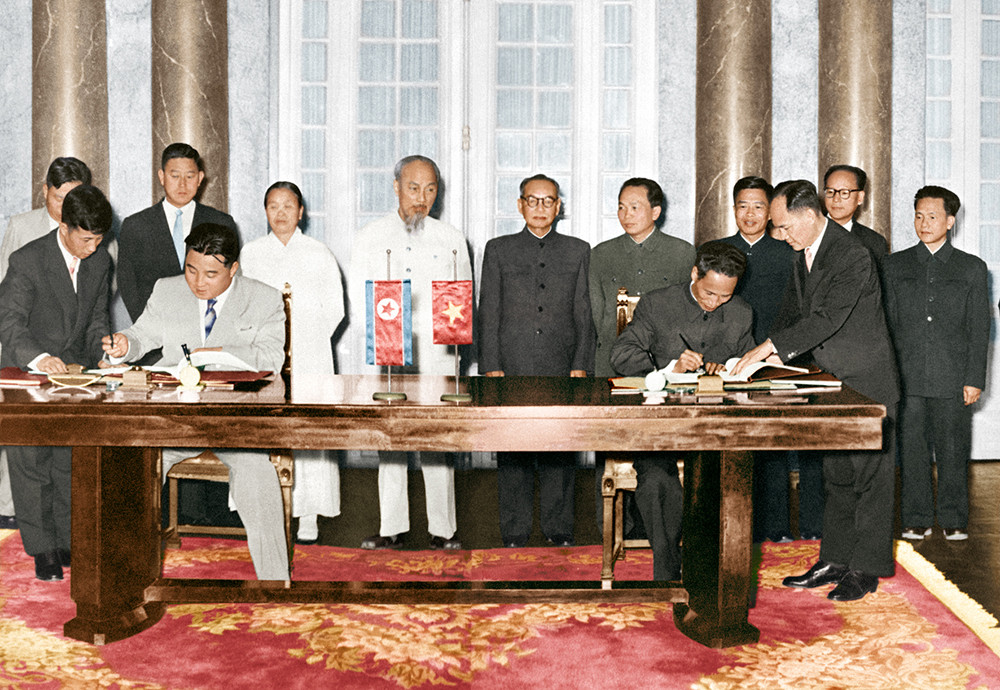 |
| President Ho Chi Minh witnessed Prime Minister Kim Il Sung and Prime Minister Pham Van Dong signing the Joint Declaration between North Korea and Vietnam in December 1958. Historical photo |
InLetter to the People's Committees of regions, provinces, districts and villages(October 17, 1945), President Ho Chi Minh also stated: "We must understand that the Government agencies from the whole country to the villages are all servants of the people, meaning they are to shoulder the common work of the people, not to oppress the people as in the period under French and Japanese rule."[7].
Buildsocialist rule of law state of the people, by the people, for the people
Speaking to the ethnic people of Tuyen Quang province in March 1961, President Ho Chi Minh explained the democratic regime and the Party's leadership very clearly: "Our regime is a democratic regime, meaning the people are the masters. Our Party is the leading Party, meaning all cadres, from the central level, to the regional level, to the provincial level, to the district level, to the commune level, at any level and in any sector - must be loyal servants of the people."
On September 9, 1969, the Eulogy of the Party Central Committee read by Comrade Le Duan, First Secretary, at the solemn memorial service for President Ho Chi Minh included the following passage: "Farewell to you, we swear: To do our best to continue to strive to realize the noble socialist and communist ideals that you outlined for the working class and our people, bringing prosperity to the country and happiness to our compatriots."
On July 2, 1976, the 6th National Assembly (1976 - 1981 term) of the Democratic Republic of Vietnam decided to change the country's name to the Socialist Republic of Vietnam. The Platform for National Construction in the Transitional Period to Socialism (supplemented and developed in 2011) determined the socialist model that our people built based on eight characteristics, and "building a socialist rule-of-law state of the people, by the people, for the people" is a basic characteristic. Article 2 of the 2013 Constitution also stipulates: "The Socialist Republic of Vietnam is a socialist rule-of-law state of the people, by the people, for the people".
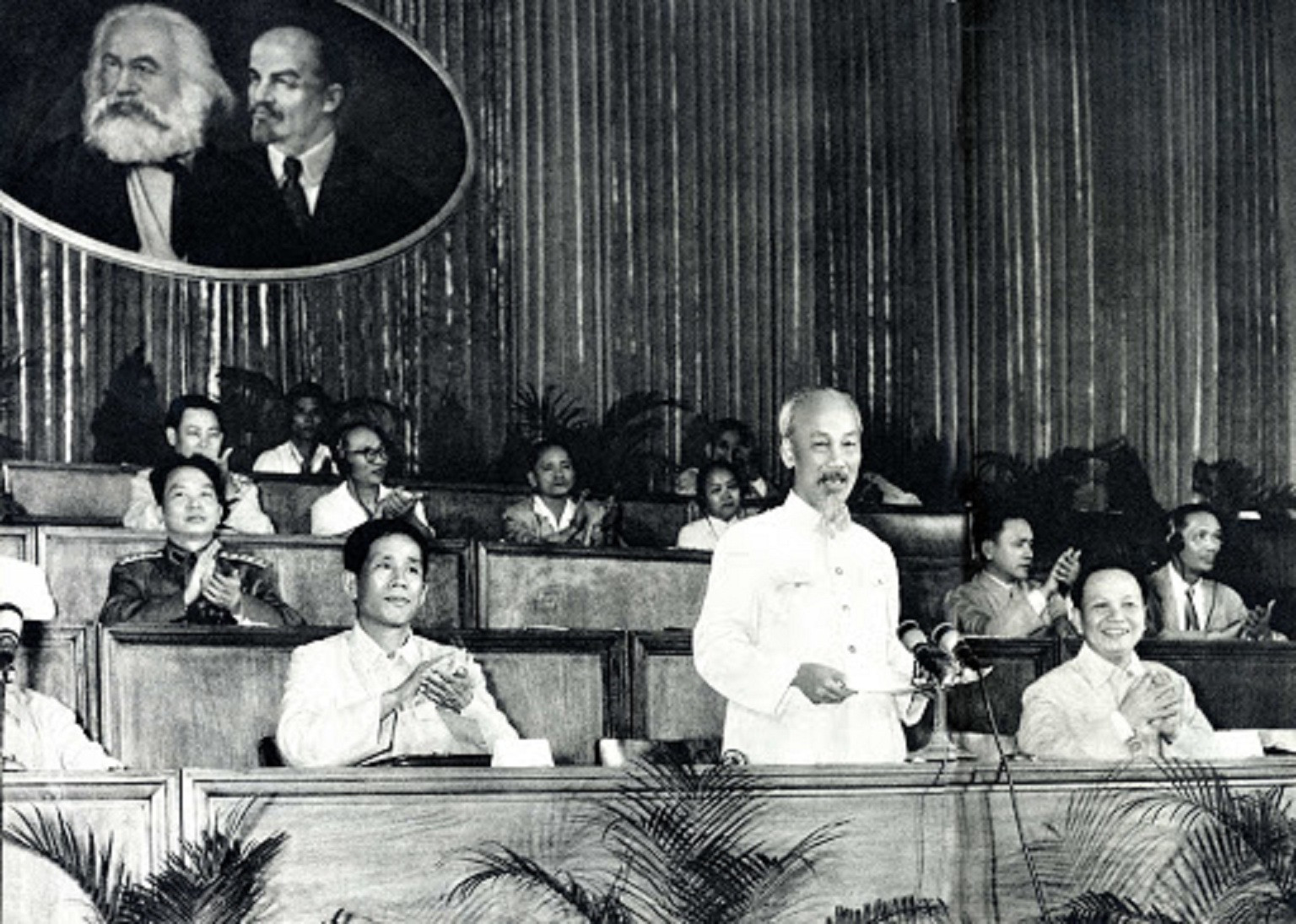 |
| The Third National Congress of the Party (1960). In the photo are the leaders of our Party and State: President of the Vietnam Workers' Party and President of the Democratic Republic of Vietnam Ho Chi Minh (standing speaker), First Secretary of the Vietnam Workers' Party Le Duan (first, left, front row), Chairman of the National Assembly Truong Chinh (first, right, front row), Minister of National Defense Vo Nguyen Giap (first, left, second row). Historical photo |
In the article “Some theoretical and practical issues on socialism and the path to socialism in Vietnam”, General Secretary Nguyen Phu Trong pointed out: “We advocate the continuous promotion of democracy, building a truly socialist rule-of-law state of the people, by the people and for the people, on the basis of the alliance between workers, farmers and intellectuals led by the Communist Party of Vietnam. The state represents the people’s right to mastery, and at the same time organizes the implementation of the Party’s guidelines; there are mechanisms for the people to exercise their right to direct mastery and representative democracy in all areas of social life, and participate in social management.
We realize that the socialist rule of law state is essentially different from the bourgeois rule of law state in that: the rule of law under the capitalist regime is essentially a tool to protect and serve the interests of the bourgeoisie, while the rule of law under the socialist regime is a tool to express and implement the people's right to mastery, to ensure and protect the interests of the vast majority of the people. Through law enforcement, the State ensures the conditions for the people to be the subjects of political power, to exercise dictatorship over all actions that infringe upon the interests of the Fatherland and the people" (NewspaperElectronic People, May 16, 2021).
[1] Ho Chi Minh: Selected Works, volume 2, Truth Publishing House, Hanoi, 1980, p. 463
[2] Ho Chi Minh: Complete Works, volume 7, National Political Publishing House, Hanoi, 2002, p. 337
[3] Ho Chi Minh: Complete Works, volume 4, National Political Publishing House, Hanoi, 1995, p. 8
[4] Ho Chi Minh: Complete Works, volume 8, National Political Publishing House, Hanoi, 2011, p. 262
[5] Ho Chi Minh: Complete Works, volume 6, National Political Publishing House, Hanoi, 2002, p. 629
[6] Ho Chi Minh: Complete Works, volume 4, National Political Publishing House, Hanoi, 1995, p. 22
[7] Ho Chi Minh: Complete Works, volume 4, National Political Publishing House, Hanoi, 2011, pp. 64-65

